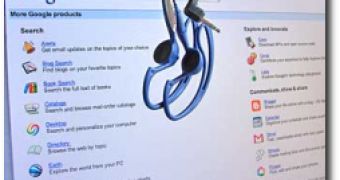Google is a company that designs numerous web-based solutions meant to allow users to use their functions directly from the official page. As you surely know, many of the Internet websites are requiring visitors to enter a visual captcha to log in because a lot of attackers developed several scripts meant to harm the page using an auto-login feature. In the past, Google released a lot of products especially to test the audio features of their products and increase the security of the webpages. The best example is represented by the audio captchas program released by the search giant that allowed users to log into a website by entering the code included into an audio file.
Google had a lot of other attempts of releasing audio based products such as Audio ads, an advertising test program released by the search giant meant to send audio adverts to numerous US radio stations. The publishers selected by the company confirmed the campaign, saying the audio ads were played by the radios and provided a high-quality sound. At this time, Google owns two video products, YouTube and Google Video, so many users started talking about a potential audio service to provide songs and albums using a web interface. Although an audio solution would be hard to organize because of the copyrights, the employees of the company are continuously working to find audio solutions.
Today, Google's employees posted a message on the official blog of the company to present new details about the audio features tested by the search giant and to provide access to some important documents released by Google that concern the testing program.
"Text isn't the only source of information on the web! We've been working on a variety of projects related to audio and visual recognition. One of the fundamental constraints that we have in designing systems at Google is the huge amounts of data that we need to process rapidly. Perhaps one of the most interesting aspects of audio recognition goes beyond the matching of degraded signals, and instead attempts to capture meaningful notions of similarity.
In our paper presented at the International Conference on Artificial Intelligence (Music Similarity), we describe a system that learns relevant similarities in music signals, while maintaining efficiency by using these learned models to create customized hashing functions," Shumeet Baluja, Michele Covell, Pedro Moreno & Eugene Weinstein sustained in the official blog of the company.

 14 DAY TRIAL //
14 DAY TRIAL //